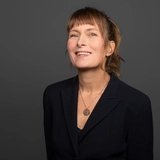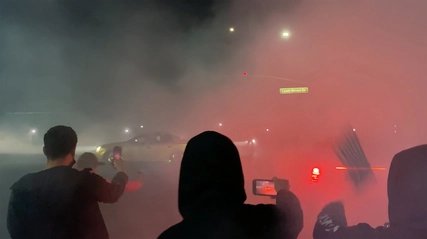
For over 30 years, Transmediale has provided a stage for the critical analysis of the effects of digitalisation. Launched in 1983 as the VideoFilmFest at the Berilnale, Transmediale has since developed into one of the most important festivals for media art and digital culture. Exhibitions, workshops, performances, club-acts and concerts offer an introduction to the topic and invite visitors to continue the discourse. Here are 11 tips about the festival that you can visit even without a festival pass.
This year's motto: "You're doing amazing, darling" is an allusion to your role in the big reality show that now overlays our non-digital reality on countless screens and mobile phones. It critically scrutinises how this flood of content affects us and our environment.
Tip 1: Dance at the festival opening party with Mutualismx
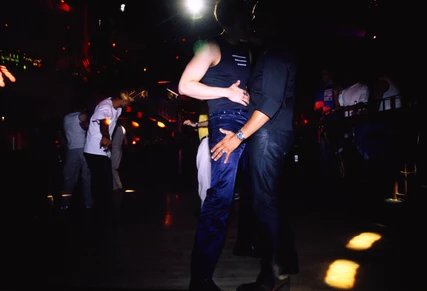
At the opening party, you dance to music that uses the tools of the future to utilise the methods of the past. More precisely, artificial intelligence is used to generate beats based on ancient, sometimes antique oracle techniques. This is made possible by Semilla.ai, a synthesiser that two performers feed live with sounds and data. A symbol of their "sonic becoming", i.e. their path to becoming sound. And if that doesn't sound mystical enough, the methodology on which the work is based is inspired by the divination arts of antiquity. Similar techniques are also used to predict AI-generated marketing or stock market trends under the buzzword "predictive analysis".
Format: Party
When: 31 January, from 6 pm, free entry
Where: silent green, Gerichtstraße 35, Wedding
Tip 2: Experience the worlds of Oceania at Oceanic Refractions

In this immersive space-sound installation, you can smell, feel, hear and see the many worlds of Oceania. The domed hall of the Silent Green is equipped with kinetic seats where you can experience the complex relationships between the environment and people up close using 360° videography. Embedded in field recordings of the reefs of Fiji, the oceans and mangroves of Kiribati and other coastal areas, you will hear the message of local fishermen, artists, grandparents, chiefs and other personalities. Statements that are emotionally touching in the face of the global climate crisis.
The installation is a collaboration project of CTM x transmediale. You need a single ticket. Please book a time slot in good time.
Format: Installation
When: 26 January to 4 February 12 - 9 pm
Where: Kuppelhalle in silent green, Gerichtstraße 35, Wedding
Tip 3: Fantasise about the deities of the future
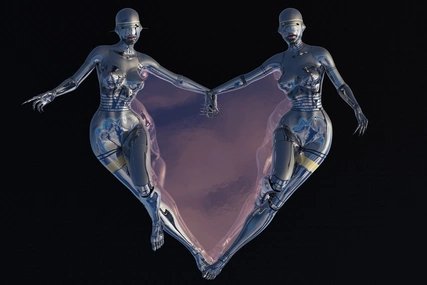
What will the goddesses of the future look like? In their joint exhibition Uncensored Lilac, Bassam Issa Al-Sabah and Jennifer Mehigan show you their image of supernatural or perhaps even extraterrestrial beings and take you into a fantastic world. Here, fever dreams and a critical examination of socio-cultural structures and climate change flow into one another. The individual works form an overarching story in which the goddesses and their pets, servants and technologies are invaded by a poisonous species, which makes the deities more fertile on the one hand, but also poisonous on the other.
Format: Exhibition
When: 26 January to 14 April, free admission
Where: silent green, Gerichtstraße 35, Wedding
Tip 4: Reflect on the perfect reality with "this is perfect, perfect, perfect"
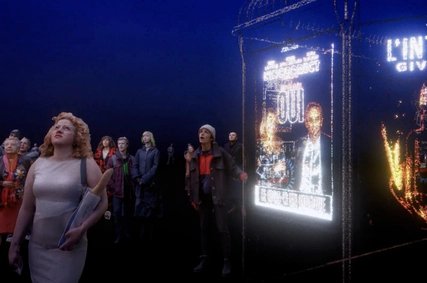
"Do we consume content or does the content consume us?" Looking at the world through a smartphone screen has become an integral part of our perception of the world. We scroll, swipe and click our way through our personal universe in endless loops - and become part of a virtual reality. In the exhibition "this is perfect, perfect, perfect" at Kunstraum Kreuzberg/Bethanien, 11 artists explore the pros and cons of this algorithm-driven reality and ask how it influences our identity, our behaviour and our language.
Format: Exhibition
When: 31 January to 14 April, free admission
Where: Kunstraum Kreuzberg/Bethanien, Mariannenplatz 2, Kreuzberg
Tip 5: Gain insights into human-machine optimisation
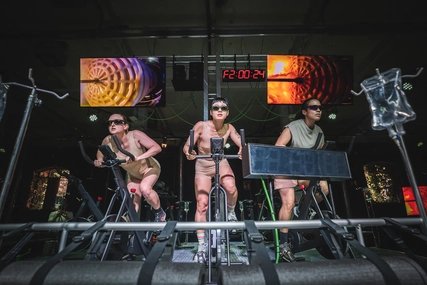
Faster, higher, stronger! This is the name of the installation performance by non-binary artist Mary Maggic, which explores the limits of this Olympic motto in a man-machine world. Three spin cyclists pedal at full power. Kombucha is produced from the energy gained in this way using a bio-reactor. An energy drink with which the athletes can refuel their muscle power. Be there when the cycle closes and Maggic's man-machine installation strives for new peak performances through an almost supernatural optimisation.
Format: installation performance
When: 3 February (several times a day)
Where: House of World Cultures, John-Foster-Dulles-Allee 10, Mitte
Tip 6: Experience utopias in the film programme with "Future Shock"
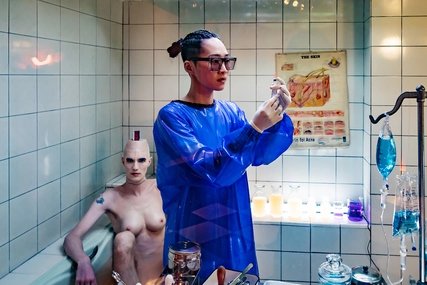
As early as 1970, the US futurologist Alvin Toffler described the effects of rapid technological change in his book "Future Shock". In the film of the same name, Su Hui-Yu places Toffler's prophecies in the context of today's Taiwan. The film combines old folk tales and supernatural mysteries with modern cityscapes and picturesque places in Taiwan. The film will be followed by a discussion with director Su Hui-Yu. The European premiere of Futureshock is part of the Transmediale film programme.
Format: Film
When: Saturday, 3 February 7 pm
Where: House of World Cultures (Safi Faye Hall), John-Foster-Dulles-Allee 10, Mitte
Tip 7: Listen to unusual music at the CTM Festival
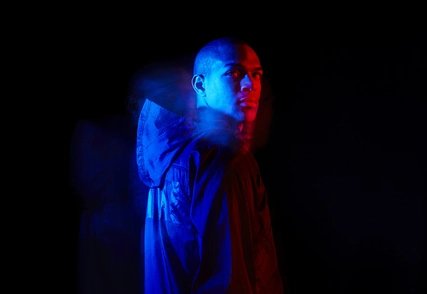
Originally started as Club Transmediale, the CTM has developed into an independent festival over the past 25 years, focussing on experimental and electronic music. In addition to several collaborative projects with transmediale (see tip 2), the CTM festival takes you to clubs such as Berghain, RSO and Oxy. The programme also includes workshops and concerts at the Radialsystem and the Gedächtniskirche. Tip: The composer and organist Katie Malone will be giving an additional concert at the Kaiser Wilhelm Memorial Church on 2 February due to the huge crowds.
When: 26 January to 4 February, single tickets
Where: various venues in Berlin
Tip 8: Learn more about quantum technology and music

Studio Quantum is all about the music of the future, or the future of music. At the invitation of the Goethe-Institut, scientists and musicians will introduce you to the world of quantum computers and show you the new possibilities that quantum computing offers for music and composition. Look forward to exciting discussions and a concluding performance.
When: 2 February, 3 - 6.30 pm
Where: Radialsystem, Holzmarktstraße 33, Friedrichshain
Tip 9: Practise net criticism at the Nettime Listening Post

Founded in 1995, Nettime is one of the oldest mailing lists on the net that deals with net criticism and cultural politics on the internet. Members post longer texts and reviews here, which then expand via various discussion threads. This process is known as collaborative text filtering. In this workshop you will learn how Nettime has evolved and discuss with list members about other platforms and formats, online habits, writing and text-generating humans, bots and LLMs, i.e. language models based on artificial intelligence (Large Language Models).
When: 3 February, from 12 noon, a fee of 5 euros will be charged for the required registration
Where: Panke, Gerichtstraße 23, Hof V, Wedding
Tip 10: Examine the theory of whether pictures say more
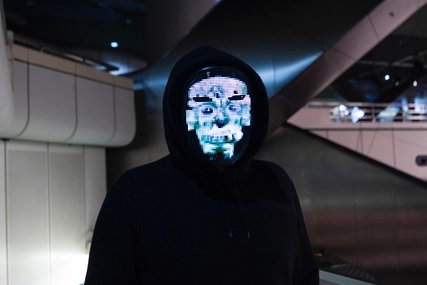
At this book launch, you will follow in the footsteps of the Czech-Brazilian media philosopher and communication scientist Vilém Flusser. Born in Prague in 1920 to a Jewish academic family, he was forced to flee the Nazis in 1939 and lived first in Brazil and then in Europe. This symposium examines Flusser's telematic social utopia, in which images replace the role of text as a medium of communication.
The volume of essays is, among other things, the result of a DAAD programme for Flusser's anniversary year 2020.
When: 2 February 10 am, free admission
Where: Vilém Flusser Archive, Media Centre of the UdK, Grunewaldstraße 2-5, Schöneberg
Tip 11: Applaud at the final concert with Farida Amadou
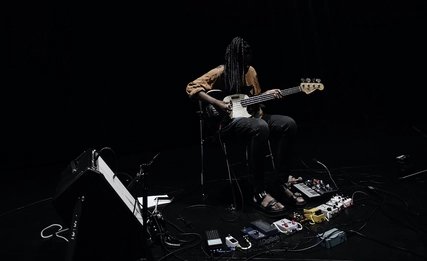
With just her bass and a few effects, Farida Amadou from Brussels creates a soundscape that is always completely new. The musician composes live and responds to your reactions. You become part of this unrepeatable performance. In the second part of the concert, which also celebrates the debut of Amadou's solo album, she will be accompanied by the New York-based trumpeter, composer and DJ Aquiles Navarro.
The closing party starts on 3 February at 9.30 pm at the Haus der Kulturen der Welt.
When: 3 February 8.30 - 10 p.m.
Where: House of World Cultures, John-Foster-Dulles-Allee 10, Mitte
